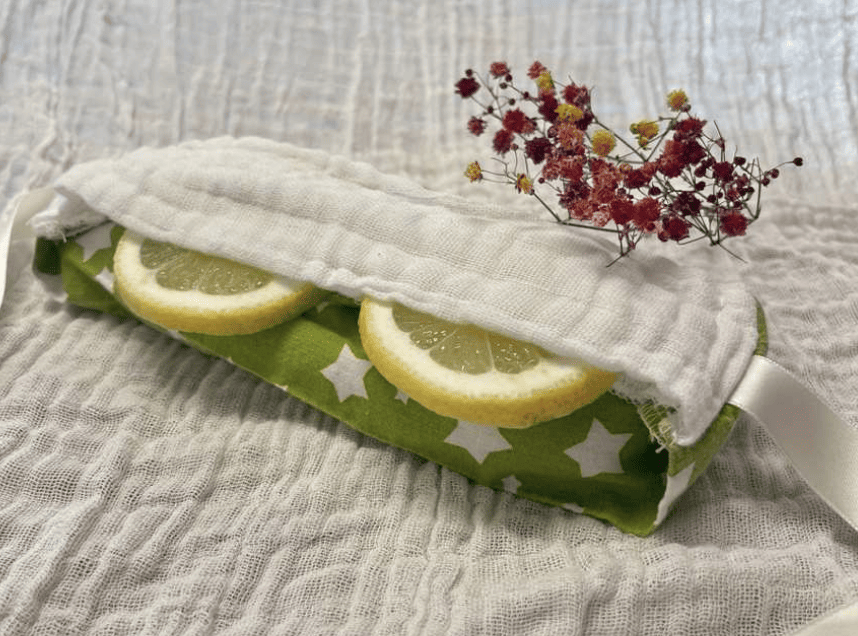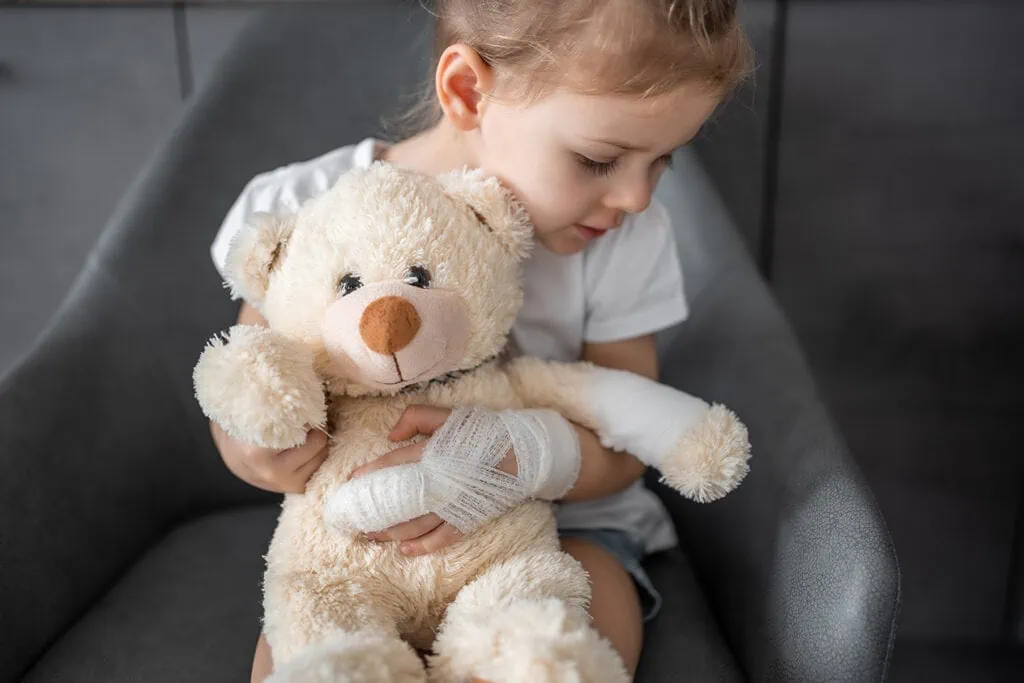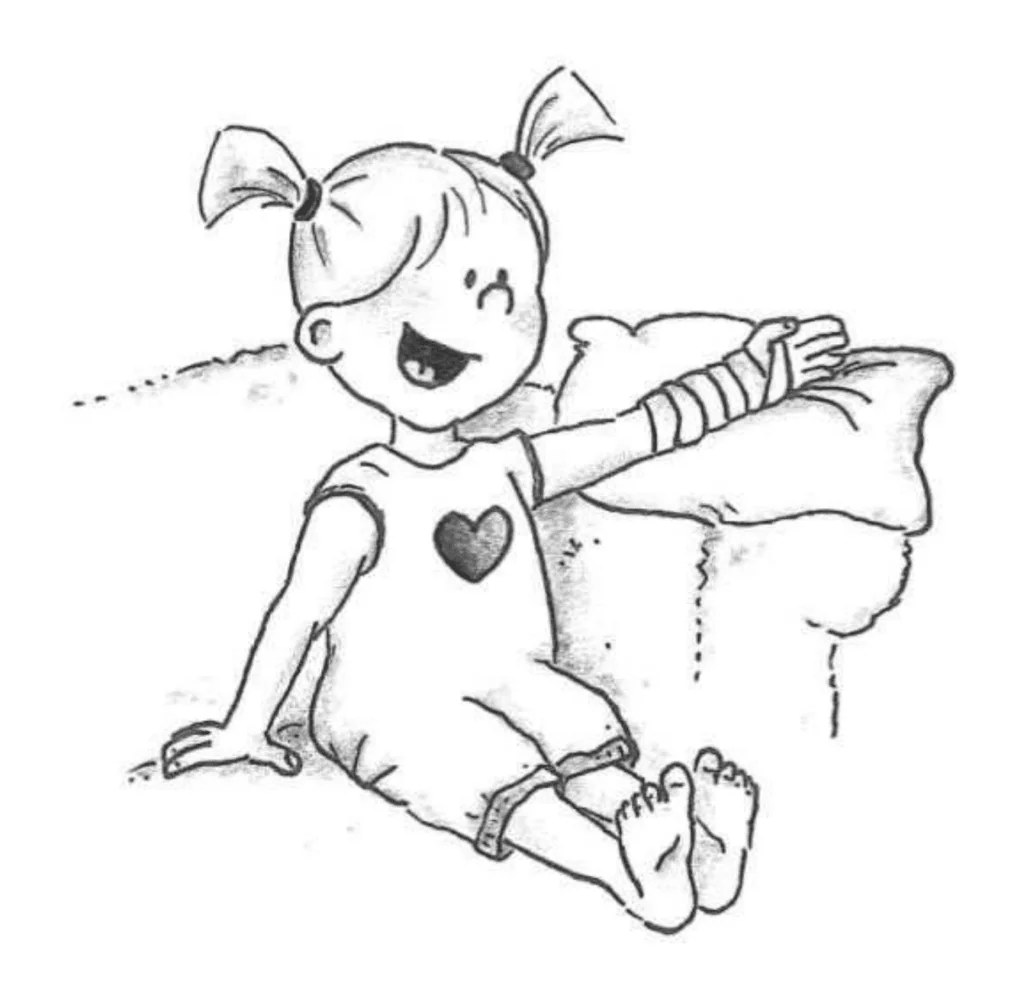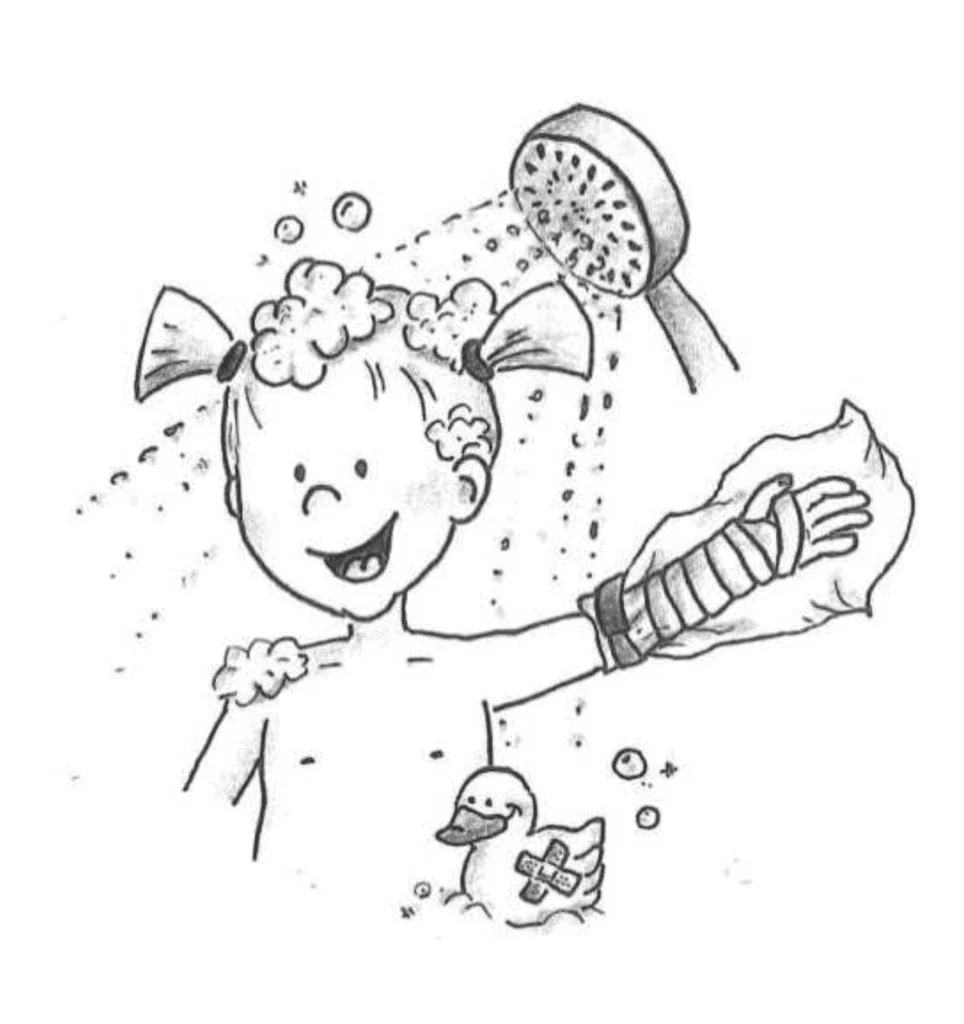Health wrap
General facts
- Wraps are external applications
- They are mediators of healing processes through the skin and include the whole human being
- They support other remedies/medicines
- Wraps require rest and time
- The environment should be warm and comfortable
- An after-rest of 30min is important
- Attention to the child is an important step in the healing process
- Children are very sensitive to smells and temperatures, so always dose carefully
- For neurodermatitis patients it is recommended to use silk instead of wool or linen for the wraps
- Do not use essential oils on infants and use only lightly tempered compresses
- Essential oils should always be emulsified or diluted (e.g. with olive oil)
- Warm compresses should always be wrapped well and warmly - as soon as they cool down, they are taken away or renewed
- Cold wraps should only be fastened and left open - as soon as they become warm, they can be taken away
The wrap set for neck and ear wraps can be purchased at our practice in the Youkidoc store at the reception.
Onion wrap

Indication: Earache
Material:
- 1 onion
- 1 meter tube gaze hose (in the set)
- 2 raw wool pillows (in the set)
- 1 headband (in the set)
Instructions:
- Chop the onion into small pieces.
- Then fill the onion into an approx. 15 cm long Tubegazi tube.
- Tie the tube on both sides and crush the chopped onion to release the essential oils.
- Warm the tubegaze to body temperature (e.g. place it on a bed bottle).
- Insert one end of the tubegaze into the au- ricle and wrap the rest around the entire auricle from above.
- Cover the ears with the raw wool pillows and fasten with the headband. Keep warm.
- The wrap can be worn like this once a day for two hours.
- Wash the skin with warm water afterwards.
Lemon neck wrap

Indication: Throat and swallowing problems, tonsillitis
Material:
- 1 organic lemon
- Organic cotton gauze compartment (in the set)
- Colorful/patterned raw cotton com- partment (in the set)
Instructions:
- Cut the organic lemon into slices.
- Place the slices side by side in the organic cotton gauze tray.
- Using your hands or the bottom of a glass, squeeze the lemon a bit to release the juice and essential oils.
- Place the wrap around the neck (avoiding the spine) and tie the ribbons at the back of the neck.
- As soon as the wrap begins to get warm, it should be removed.
- This wrap can be repeated regularly.





